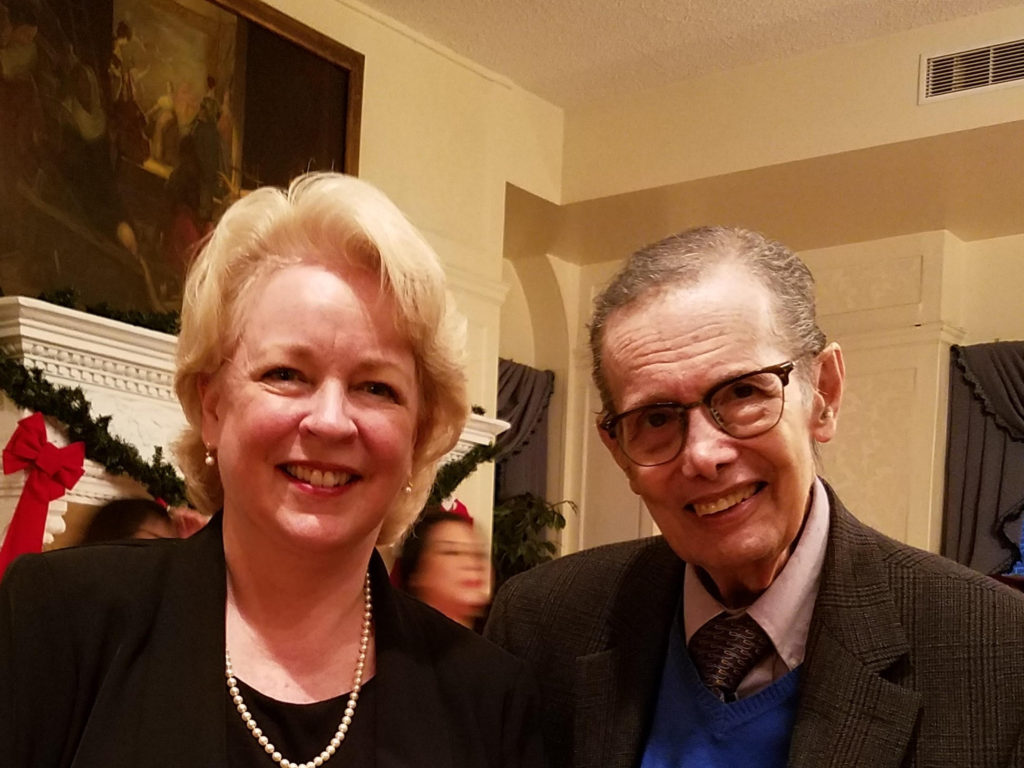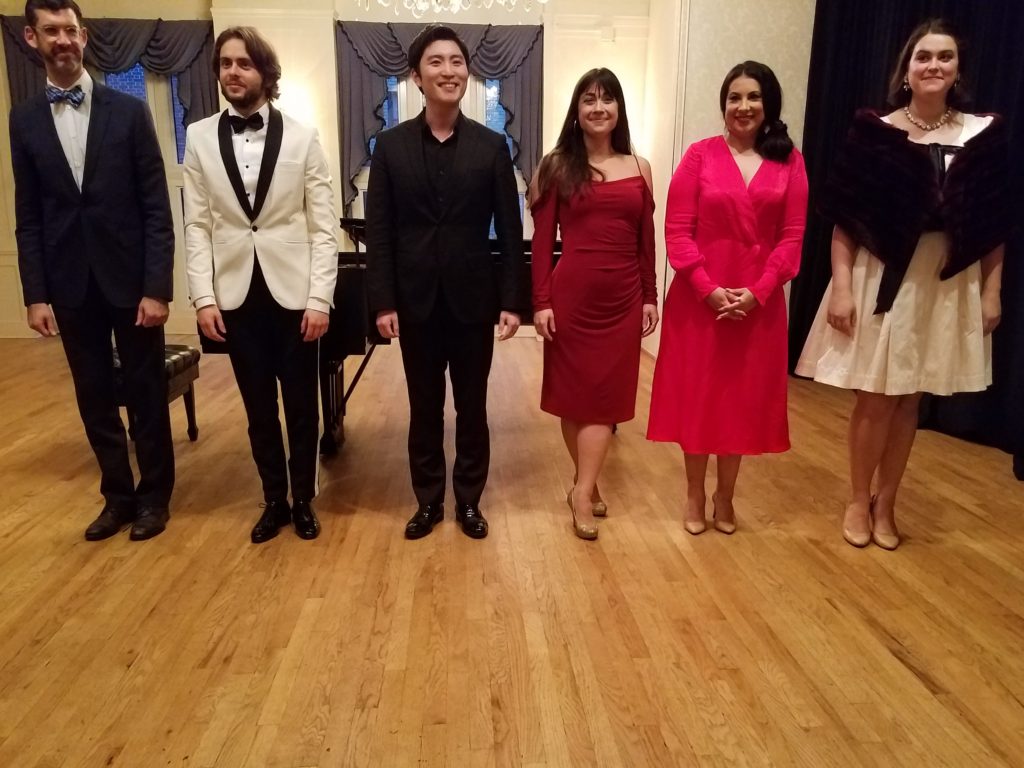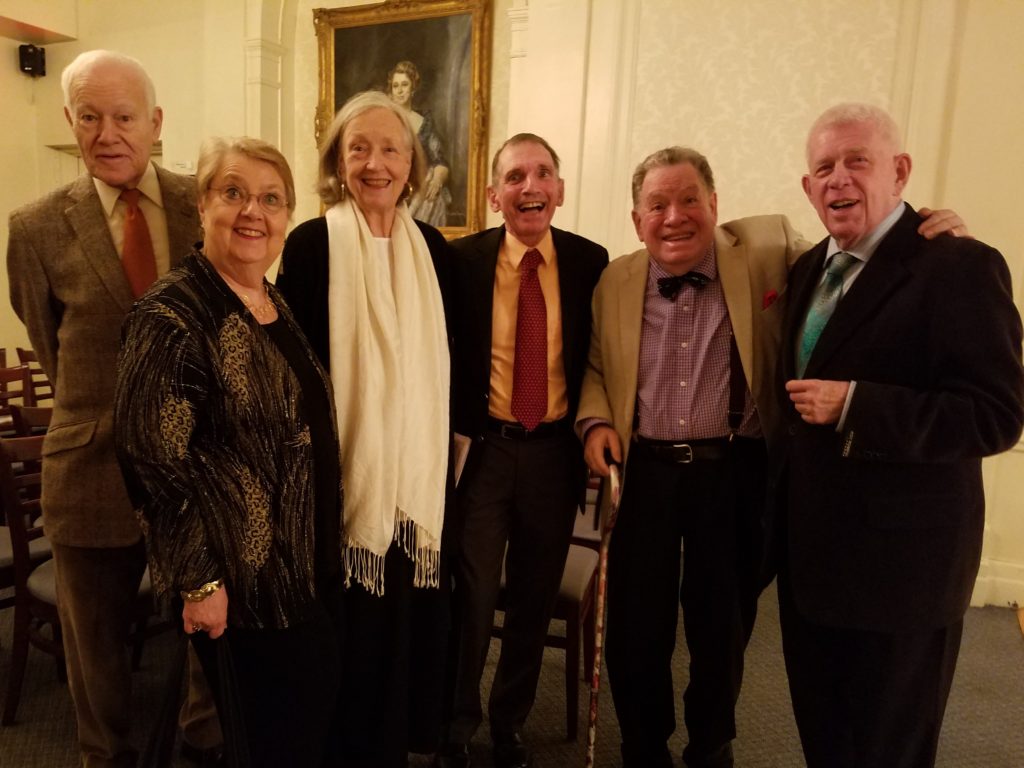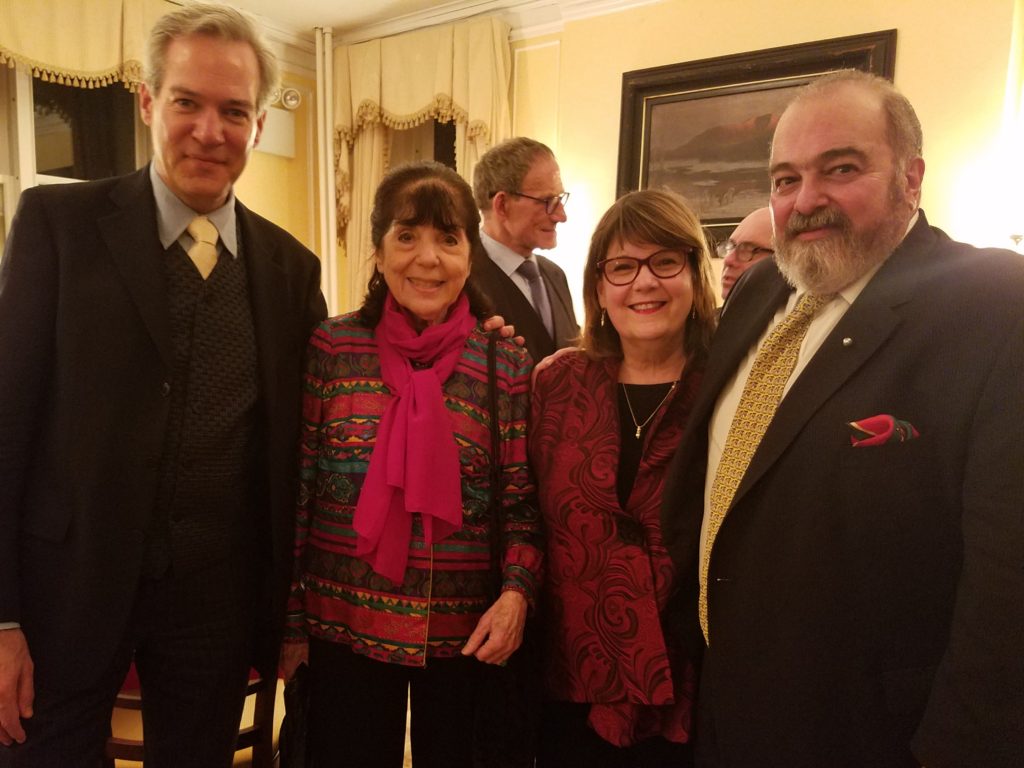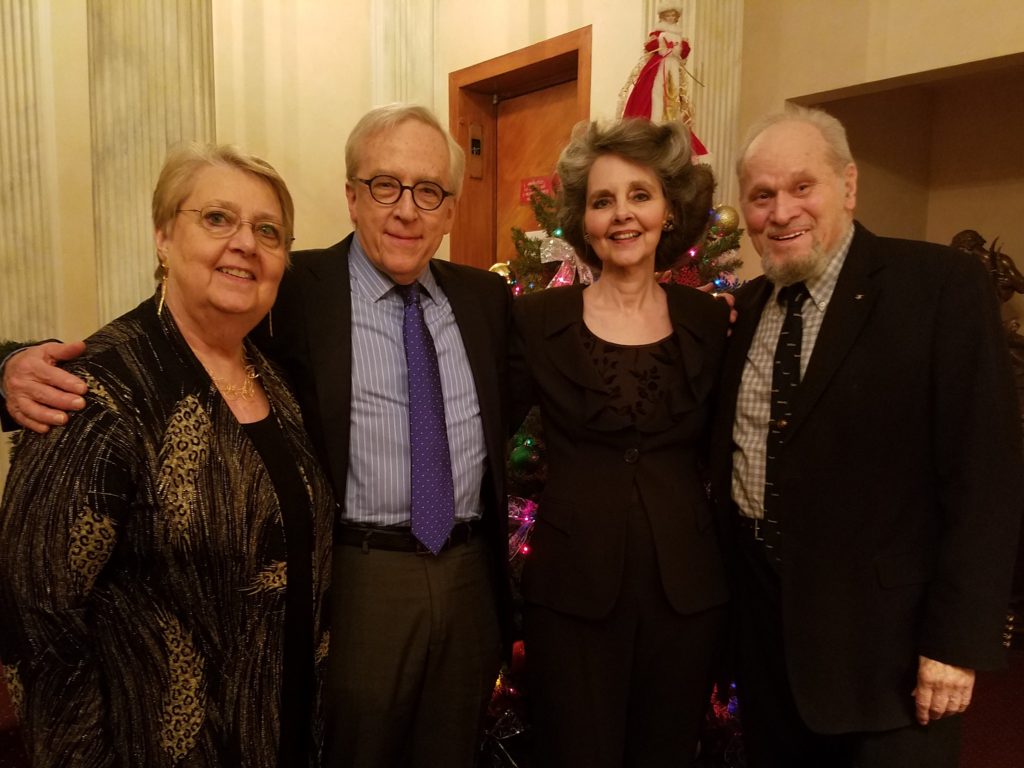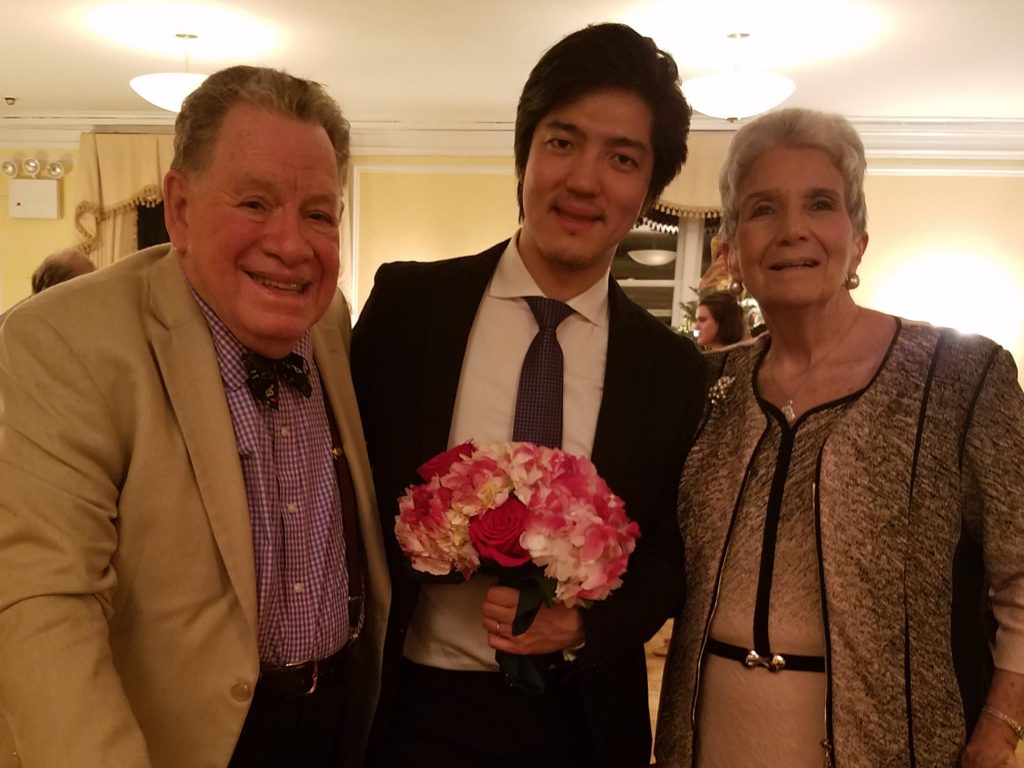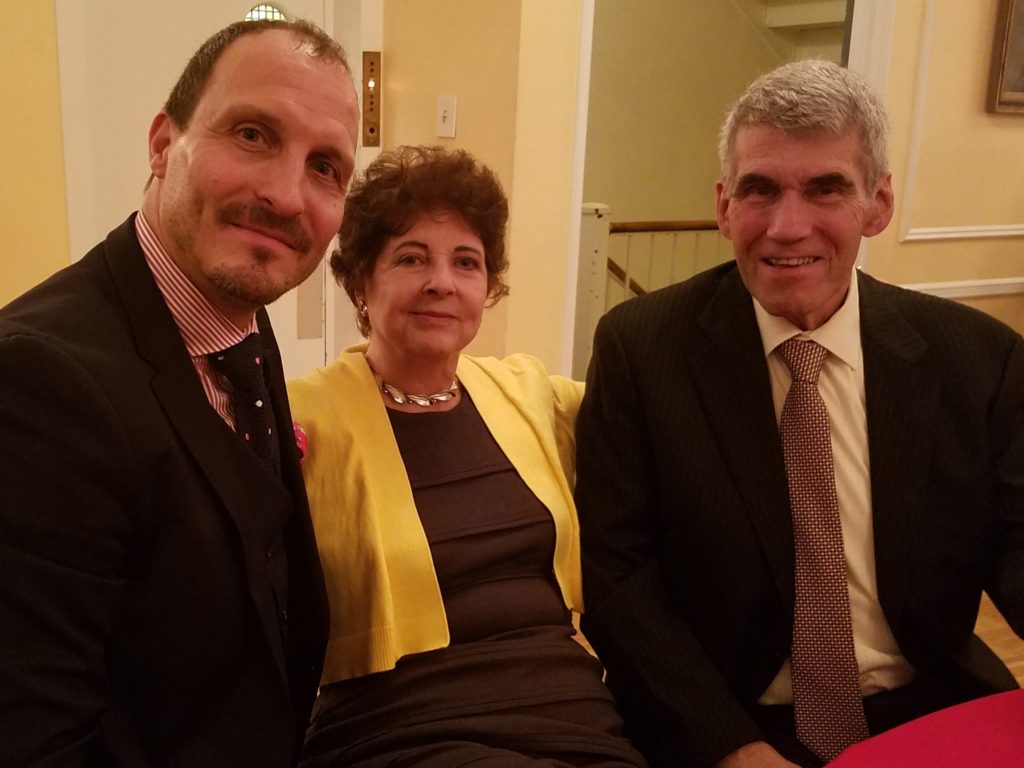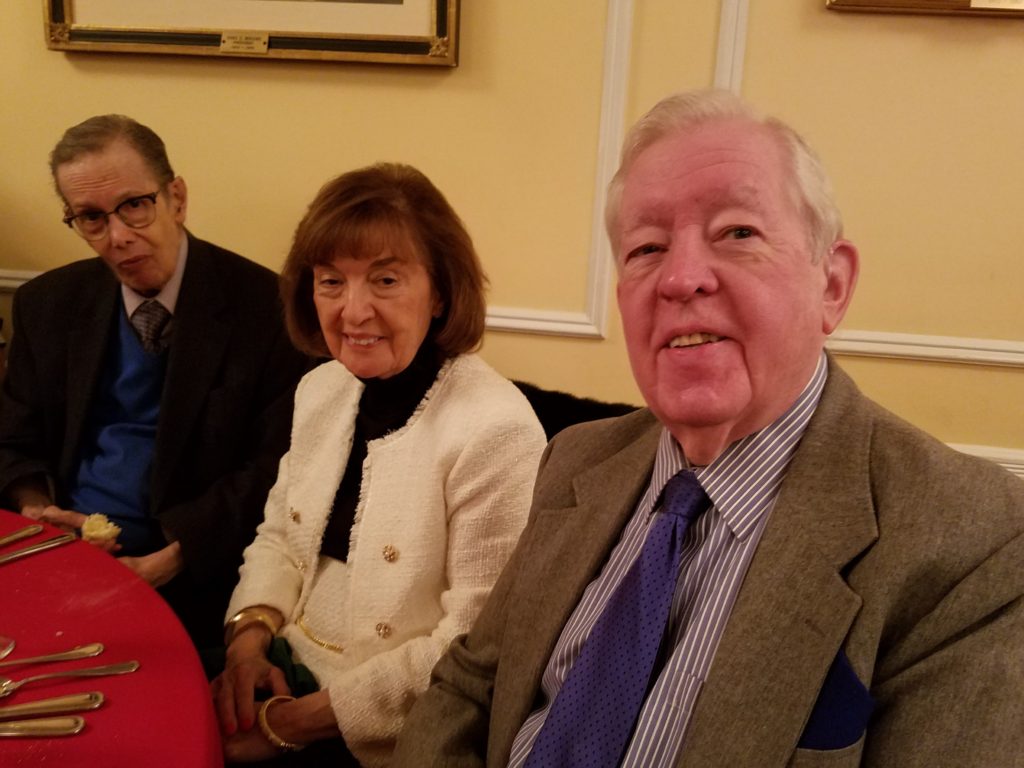On Site Opera ‘s (OSO) mission is to explore new technology in opera. To that end, they held a preview performance of Amahl & the Night Visitors on Tuesday, December 4th at The Holy Apostles Soup Kitchen in Chelsea, the largest soup kitchen in the city since 1982. They are working with Breaking Ground who is New York’s largest supportive housing provider to help people overcome and avoid homelessness. Some in the cast were homeless or had been homeless and given new life by The Holy Apostles Soup Kitchen and we are thankful for that assistance in their lives.
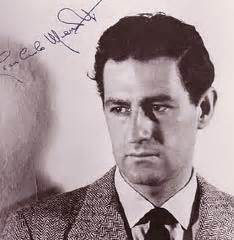
Amahl and the Night Visitors was composed in 1951 by the Italian (later American composer) Gian-Carlo Menotti (July 11, 1911- February 1, 2007) for the National Broadcasting Company (NBC) television. Menotti could not think of what he wanted to write until he saw the Hieronymus Bosch painting of The Adoration of the Magi at the Metropolitan Museum of Art in New York City. He recalled his boyhood in Italy when he and his brother would await the gifts left by the three Kings. Arturo Toscanini, the great conductor and head of the NBC Symphony, after attending the dress rehearsal, told Menotti tearfully, “this is your finest work.” The initial telecast on Christmas Eve in 1951, drew an audience of millions and became an annual presentation for years. NBC head General David Sarnoff wanted to bring culture to the television viewing public and also formed the NBC Opera Company which showed opera on television and toured the country as well. Today, this masterpiece is rarely presented despite the strong audience reception in the past. Amahl & The Night Visitors was a wonderful presentation at of The Holy Apostles Soup Kitchen’s splendid “opera free for all” initiative program.
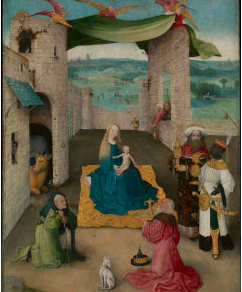
Amahl is a poor crippled boy who lives in a village with his widowed Mother. He is playing his shepherd’s pipe as the opening theme while his Mother is calling him to come home. Taking his time to respond to her, he tells his Mother of a star with a tail in the sky. She doesn’t believe him because he is always telling fibs. As they get ready for bed, there suddenly is a knock on the door and when Amahl opens it, he tells his disbelieving Mother that there is a king. She chastises him for telling lies and future knocks show two kings. When his Mother opens the door, “it is Three Kings” and Amahl exclaimed, “and one of them is black.” The Three Kings are looking for a place to rest for the night for they are seeking a Child who will be a Savior to the world. The Mother sends Amahl to bring the villagers with food and even dance for their royal visitors. Amahl’s Mother, thinking only of her own child and their poverty, attempts to steal some of the Kings’ money. She is caught by the Page and Amahl fiercely defends her. The Kings tell her that the Child they seek will not need their gold. His life will be based on love. The Kings tell her to keep the money but the mother returns it. Amahl offers his cane as a gift to the Child and at that moment, a miracle occurs and Amahl walks unaided. He asks if he could accompany the Kings on their journey to the Child and his Mother gives permission. The final scene is of young Amahl joining the Kings as his Mother waves goodbye to the strains of the shepherd’s pipe opening theme.
I am an opera purist and do not like “updating” or modernizing opera or changing the format. This production was an exception. There were two Amahl’s who both sang successfully on different days. One was Devin Zamir Coleman and the other that we viewed was Luciano Pantano.
In the spirit of giving, in the spirit of compassion, Menotti’s magnificent mini masterpiece bloomed anew and showed a layer of the Christmas spirit previously felt but rarely seen. Eric Einhorn, the stage director, gave us a performance that moved us with the great melodic output of the composer, retained the storyline but gave it a reality and embellished the spirit of charity so dear to the season. Conductor Geoffrey McDonald, led the 20 or so superb musicians in a performance of stirring reality and mirthful abandon.
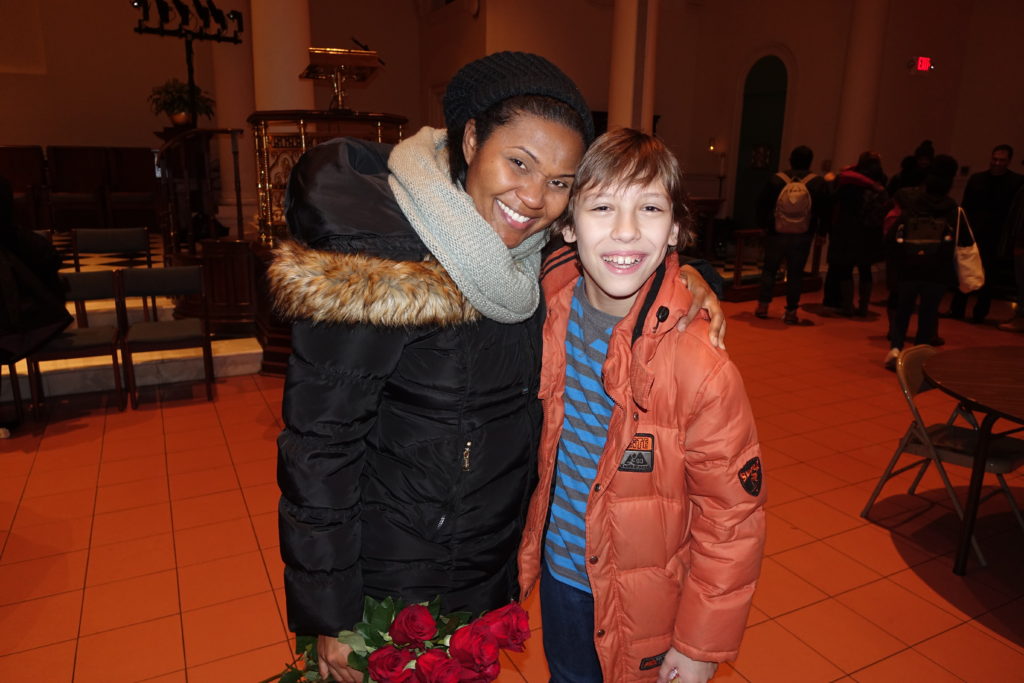
Photo by Marcello Pantano
Amahl was brilliantly portrayed by Luciano Pantano whose powerful and expressive treble voice echoed throughout the auditorium. Young Luciano sang the song of the sheep, “I was a Shepherd” with poignant tenderness. His blending with his Mother, soprano Aundi Marie Moore showed the love they shared despite his constant “fibs” that soon became true.
Ms. Moore’s frustration at being poor with a crippled child was keenly felt. Amahl sings “Don’t Cry Mother Dear,” when she suggests they go begging so they can get some food to eat. Her Puccini-like singing of “Do they know …All that gold” was one of the amazing highlights of this magical evening. Ms. Moore’s radiant and powerful soprano was always tapered to accommodate her partner (son) Amahl so that both voices blended and resonated evenly. “I will miss you very much” was so beautifully presented at the end.
Joseph Gaines was a colorful, and lovable King Kaspar and his singing of the iconic “This is my box” was amusing. His tenor was expressive and often rhapsodic. His happy cries of “lovely, lovely, lovely,” still echo in memory.
Daniel Belcher’s robust baritone made him a miraculous irascible King Melchior and his shredded strands of colored costume a bit of a roustabout. He occasionally sat in the audience and always created a bit of a stir with his quizzical antics.
Musa Ngqungwana was a strong King Balthazar and one always felt that his deep rich basso was assurance that all would be well. His magnificent vocal blend with his two royal friends on their mission to find the child who will redeem the world in, “Have you seen a child?” was glorious. He wore dungarees as part of his costume. The three “Kings” had an aura of being homeless as well. Some of their “gifts” were cans of beans and peas, old newspaper shreds and even Kaspar’s parrot was a newspaper picture of one. Each homeless looking King carried themselves with a sense of strength and persistent dignity.
Jessica Jahn’s costumes were colorful and truthful, each one summarizing the character of good people gone astray by circumstance but showing joy and big bigheartedness.
The peasants and villagers excellent dancing was arranged by choreographer Winston A. Benons, Jr. He put exceptional zest and flair in the dancing. It was nice to chat with Winston and Omari Contasté one of his stellar dancers.
One of the most touching moments was when Amahl (Luciano Pantano) asked King Kaspar, “amongst your magic stones in your box, is there one that could cure a crippled boy?” Kaspar who was very deaf replies,”eh?” and dejected Amahl said, “Never mind.” This was very poignantly done. When Amahl’s Mother sings, “All that gold,” and “For my child, and is caught stealing some of the gold and cash by the King’s Page, security guard Jonathan R. Green, his soaring cries of “thief, thief” had us jumping in our seats. Amahl fiercely defends his Mother, threatening to beat him. The page was dressed in a modern Security guard outfit and of course, being a large adult, overwhelmed young Amahl but kept him at bay.
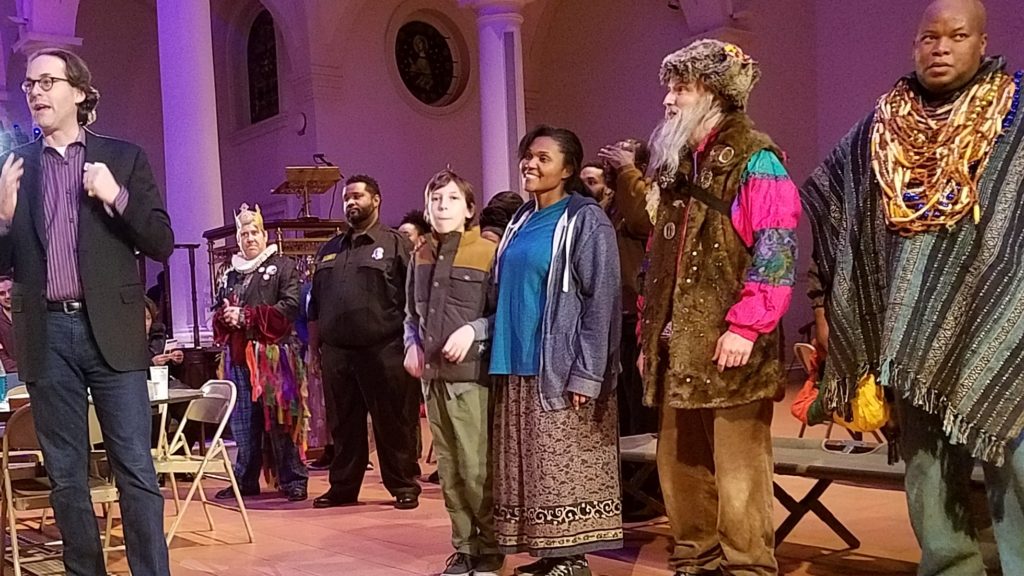
Photo by Marcello Pantano
When the “Kings” forgive Amahl’s Mother and sing of the Child again, she gives the money back and Amahl offers his “walking cane” in case the child might need one. Amahl discovers at that moment, that he is walking like a normal child. All the Kings marvel and ask if they could touch him which he allows. Reluctantly Amahl lets the Security guard touch him, “but only once!”
All ends happily with a loving duet between mother and child and with the familiar shepherds pipe echoing Amahl’s opening theme. The three Kings leave for their journey to the Child as Amahl’s Mother waves goodbye to the familiar and friendly shepherds pipe theme.
The chorus sang wondrously, the dancers were seemingly energizer batteries in their enthusiasm. Shawn K. Kaufman’s lighting design was vital, Gabrielle Vincent’s hair and makeup design was clever and kudos to choral director Michael A. Ciavaglia. The chorus singing of the Shepherds’ song (Emily, Emily, Michael, Bartholomew) was delightful. My wife Judy sang this at Santa Monica City College in their choir when Amahl and the Night Visitors was fairly new.
The applause and cheers was a strong testament to Gian-Carlo Menotti’s Christmas masterpiece changed, yet powerfully unchanged, in its message of peace and kindness and generosity especially at Christmastime.
Luciano had his talented musical family there. Mother Tanya, Dad Marcello, sister Leeza, grandparents Nikolay, Lubov, Nino, and Judy. Our guest was opera lecturer Lou Barrella who was profoundly moved as we all were. This was an Amahl to savor and keep in one’s heart.
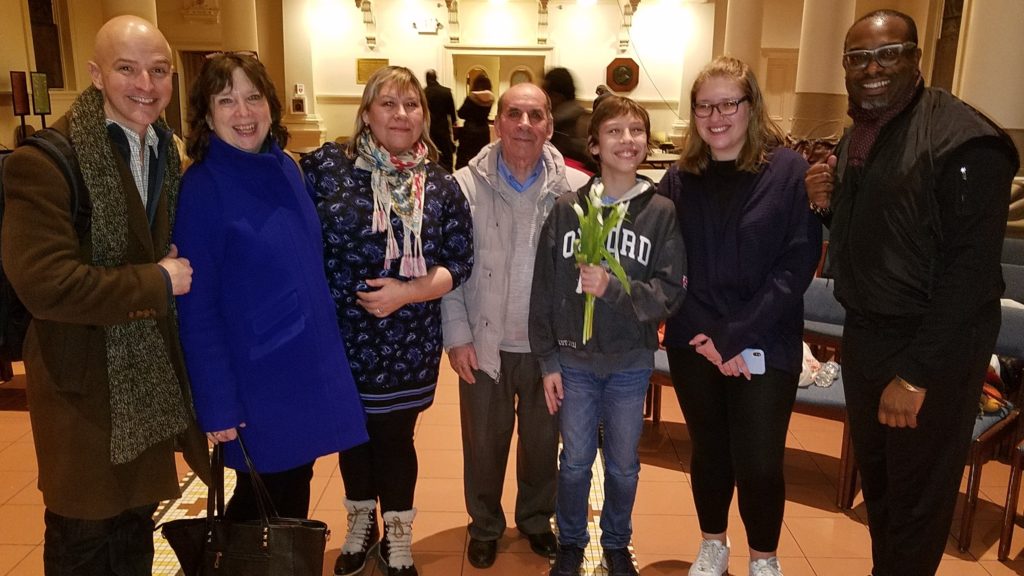
Photo by Marcello Pantano
It was nice to see Dr. Claudia Dumschat, Music Director from The Church of the Transfiguration aka “The Little Church around the Corner” where Luciano Pantano sang his first Amahl.
Tonight’s performance tells me that there is a future for Luciano Pantano in opera or theatre. His Italian, Russian and Jewish background are all combined from Tchaikovsky and Pushkin, Verdi and Puccini, Bernstein and Berlin to demonstrate the joys of art and music.
Menotti smiled in his heavenly realm. Judy and I met him at the Brooklyn Academy of Music and again at Avery Fischer Hall at performances of Amahl back in the 1980s.
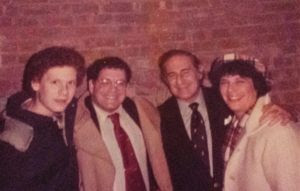
We thank On Site Opera, Breaking Ground and the people in need that it helped and The Holy Apostles Soup Kitchen for keeping this great opera shining in our hearts this Christmas of 2018.

